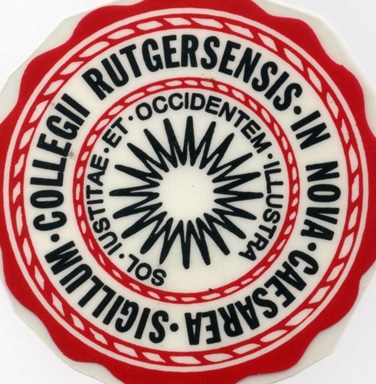June 1, 2017
Todd B. Bates

Stylophora pistillata, a well-studied stony coral common in the Indo-Pacific. Photo: Kevin Wyman/Rutgers University
Stony corals may be more resilient to ocean acidification than once thought, according to a Rutgers University study that shows they rely on proteins to help create their rock-hard skeletons.
“The bottom line is that corals will make rock even under adverse conditions,” said Paul G. Falkowski, a distinguished professor who leads the Environmental Biophysics and Molecular Ecology Laboratory at Rutgers University-New Brunswick. “They will probably make rock even as the ocean becomes slightly acidic from the burning of fossil fuels.”
The Rutgers team, including lead author Stanislas Von Euw, a post-doctoral research fellow in Falkowski’s lab, details its findings in a pioneering study published online today in the journal Science. Using a materials science approach, the team tapped several high-tech imaging methods to show that corals use acid-rich proteins to build rock-hard skeletons made of calcium carbonate minerals.
“What we’re showing is that the decades-old general model for how corals make rock is wrong,” Falkowski said. “This very careful study very precisely shows that corals will secrete proteins, and the proteins are what really forms the mineral and the proteins are very acidic, which will surprise a lot of people.”
Corals are largely colonial organisms that harbor hundreds to hundreds of thousands of polyps (animals). Reefs built by stony, shallow-water coral species are among the world’s most diverse ecosystems. Thousands of species of fish and other sea life rely on reefs for survival, and thousands of human communities count on reefs for food, protection and jobs, according to the National Oceanic and Atmospheric Administration.
But corals face several environmental threats over the long-run: potentially deadly bleaching from global warming and rapid temperature changes; nutrient pollution; the physical destruction of coral reefs; and ocean acidification linked to carbon dioxide emissions, Falkowski said.
The ocean absorbs carbon dioxide from fossil fuel burning and land use changes, leading to lower pH and greater acidity, according to NOAA. Ocean acidification is reducing levels of calcium carbonate minerals in many areas, which will likely hamper the ability of some organisms to create and maintain their shells.
See the full article here .
Follow Rutgers Research here .
Please help promote STEM in your local schools.
Rutgers, The State University of New Jersey, is a leading national research university and the state’s preeminent, comprehensive public institution of higher education. Rutgers is dedicated to teaching that meets the highest standards of excellence; to conducting research that breaks new ground; and to providing services, solutions, and clinical care that help individuals and the local, national, and global communities where they live.
Founded in 1766, Rutgers teaches across the full educational spectrum: preschool to precollege; undergraduate to graduate; postdoctoral fellowships to residencies; and continuing education for professional and personal advancement.

Please give us back our original beautiful seal which the University stole away from us.
As a ’67 graduate of University college, second in my class, I am proud to be a member of

Alpha Sigma Lamda, National Honor Society of non-tradional students.

